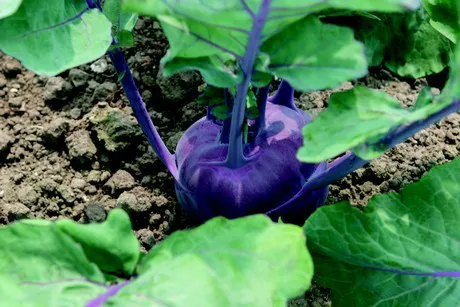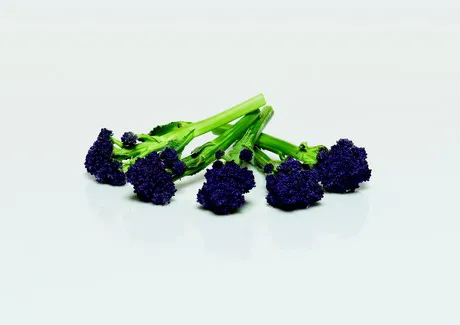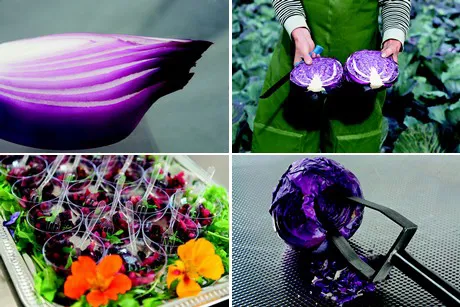The interest of consumers in cabbages is growing. "Current and future consumers are well informed. They are interested in nutrition, health, quality, new flavors and gastronomy. Their needs and tastes are quickly evolving. For Bejo, it is essential to strengthen all the links of the chain (producers, wholesalers, retailers, etc.), with the final consumer as the target," says Enrique Cadiñanos, head of sales and seed development at Bejo Ibérica.
The company is specialized in the development of seeds of brassicas (cabbages), carrots, onions and other vegetables, such as leeks. It has become a global leader in the selection, development and sale of seeds of these vegetables, and its only resource to attract new consumers and boost sales is to offer more attractive vegetables.

Since 1978, Bejo Ibérica has not stopped improving its varieties. Its flagship seeds are still the brassicas and carrots. "For years, these crops have been a commodity without added value. Until recently, they were perceived as a traditional product that seemed 'boring', and now they are setting trends. Having optimum seeds makes it possible to offer the consumer a product with clear qualitative differentiation and also attractive. Moreover, by selecting the variety that is better adapted to the growing conditions (weather, acreage, pests, etc.) the producer obtains better results," says Enrique Cadiñanos.
In a commercial model based on "pushing", the seed is sold to the producer without taking the final consumer into account. "It's a risky system. In a "pull" system, the final consumer "pulls" the chain, bringing the rest of the links into play. In a demanding market, it is essential to be familiar with current trends and to stay close to the consumer," says Enrique.

"We are permanently in touch with supermarkets in order to learn vital information about customer preferences. If we know their behavior and needs, we will know what products we should be putting on the shelves and we'll design the right tools. In our case, it is all about researching and innovating in seeds to find varieties that satisfy producers and retailers, but also the consumer. We want the end products to be perceived as healthy, tasty, innovative and attractive for special occasions," explains Enrique Cadiñanos.
An example of this is the awareness of future consumers about organic products. Thus, retailers like Lidl or Carrefour are creating special lines for such vegetables. "Our company, which is focused on this organic philosophy, is looking for organic seed varieties that ensure a good production, as well as a constant supply to retailers, as is also the case with conventional products. It is increasingly important that the vegetables have an attractive appearance and taste good, otherwise, consumers won't come back for more," says Enrique Cadiñanos.
Research: Seeking the ideal color and the most pleasant taste
If there's one thing that defines the firm's long-term policy, it's the taste. "Our commercial line 'Sweet 4U' promotes our varieties in terms of flavor, giving our clients tools for promotions targeted at consumers in social media (web, Twitter, etc.). Working in partnership with research entities such as Wageningen in the Netherlands, we test the genetic material scientifically by selecting the best flavors. Bejo has been researching genetic material for almost 15 years in search of the best flavor within each vegetable group.

Our "purple power" range, which consists of purple-coloured vegetables, is also booming. Their color is associated with the concept of 'healthy product', since they contain a higher percentage of antioxidants compared to vegetables of other colors. When consumers see a purple vegetable, they assume that it is a healthy product. Such tones and appearance are appreciated in cuisine. The "purple power" range consists of seeds of: Erasmus asparagus, Purple Sprouting Broccoli Burgundy BE 3047, table beet, onion, Kolibri kohlrabi, carrot (Deep Purple, Purple Haze, Purple Sun), etc.
Another traditional product that is now trendy is the COOLWRAP with special varieties of smooth white cabbage, whose special texture and shape make it possible to cook stuffed rolls (coolwraps), Japanese food (sushi) or traditional dishes made with layers of cabbage (cannelloni, lasagne...). Besides, they are a great alternative for those with celiac disease and consumers with low carbohydrate diets. These trends are boosting the sales of whole traditional cabbage.
Organic seeds: a promising future from the start
European consumers for the most part, but also the Spanish, want the seeds of organic products to be produced also by organic methods. More and more countries are including this in their regulations for the organic production. It is important for the organic to be perceived as a reliable and fraud-free form of production, not just by the consumer, but also by the distribution sector, which is very sensitive to safety. The change in consumer mentality has a direct impact on agriculture, and as a result, Bejo Zaden is making a huge effort to introduce more 100% ECO varieties into its range. Currently, the company has organic varieties for 40 different crops, with a total of 270 varieties produced organically from the start. Hence the motto "RIGHT FROM THE START".
While many companies are diversifying with products other than seeds, Bejo is only investing in its main form of business. "Focusing on R & D is the only way to pursue excellence. We must not forget that finding a new variety involves between 12 and 15 years of research and hard work without guarantee of results," says Enrique Cadiñanos.
The reduction in the use of phytosanitary products is a stumbling block for brassicas. "In the previous campaign, with scarce rains in northern Europe, issues have been caused by the Plutella xylostella (cabbage moth), resulting in quality problems due to the lack of options when it comes to phytosanitary products. Vegetables that do not come from Europe can more easily access treatments not allowed by our legislation. In order to stand out from the competition, we need to put emphasis on our higher standards when it comes to research, regulation and food safety," concludes Enrique Cadiñanos.
About the taste: Sweet4U
For more information:
Enrique Cadiñanos
Head of Sales and Developmemt
BEJO IBÉRICA
Calle del Hervidero, 15
28750 San Agustín del Guadalix. Spain
T +34 91 658 70 72
info@bejo.es
www.bejo.es
